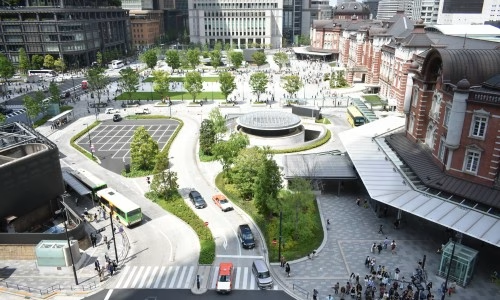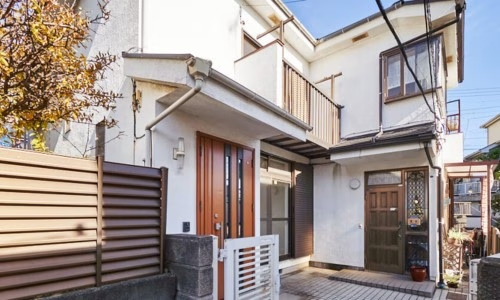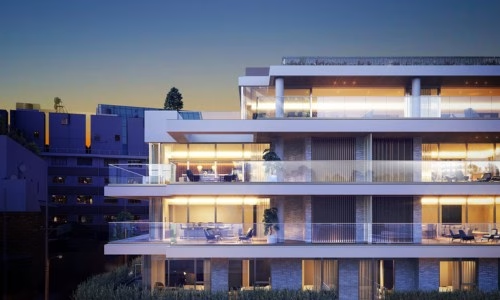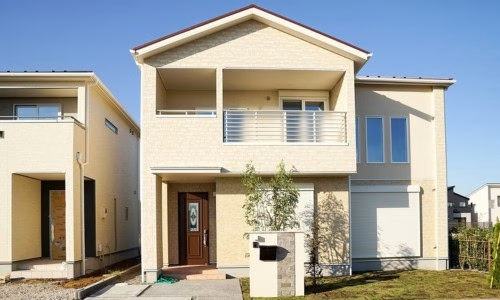Purchasing property in Japan is an increasingly attractive option not just for locals, but also for foreign residents planning to settle down long-term. But what exactly is the average cost of a home in Japan, and how does it relate to national income levels?
Let’s break down the current real estate landscape and what to expect as a buyer in 2025.
Japan’s Housing Market at a Glance
Japan provides a diverse selection of residential properties that cater to different lifestyles and income levels. Whether you’re looking for a compact apartment in a bustling downtown district or a spacious family home in the countryside, there’s no shortage of choices. Property values can differ widely based on several factors, including city size, neighborhood appeal, type of construction, and building age.
As of 2025, purchasing a brand-new condominium in central areas of Tokyo will likely cost between ¥65 million and ¥75 million, which translates to approximately $450,000 to $520,000 USD. These units are often found in desirable districts with excellent transport access, modern amenities, and strong resale value.
In contrast, regional cities such as Sapporo, Fukuoka, or Hiroshima offer much more budget-friendly options. In these locations, similar apartments may be priced at 40–50% lower than in Tokyo, making them appealing to first-time buyers or those seeking a slower-paced lifestyle.
When it comes to detached housing, especially in suburban neighborhoods or smaller towns, prices are typically more manageable. These homes offer greater living space and, in many cases, land ownership, something rare in the capital’s apartment market.
In recent years, shifts in the economy have had a clear impact on property prices. Rising inflation, a declining yen, and evolving interest rates have made the housing market more volatile. These economic conditions continue to shape real estate dynamics across the country.

New developments near Tokyo Station
Regional Price Comparison: Tokyo vs Other Cities
Tokyo consistently ranks among the priciest housing markets in Japan, especially in districts like Minato, Shibuya, or Chiyoda. However, buyers who are open to living slightly outside the city core can find far better value in surrounding prefectures.
Areas such as Chiba, Saitama, and Kanagawa have become popular with homebuyers seeking more space and comfort while still staying within commuting distance of central Tokyo. In many parts of Greater Tokyo, particularly in suburban zones, properties offer more square footage and land at significantly lower costs than what’s available downtown.
These outer districts attract many middle-class households who are priced out of the capital’s most sought-after neighborhoods but still want urban access. Thanks to reliable train lines and improved infrastructure, the daily commute remains manageable, making these areas especially appealing to families and working professionals.
Though renting in Tokyo remains common, a growing number of people are choosing to invest in homes beyond the city center. With rising housing prices in urban wards, suburban purchases are increasingly seen as a smarter, long-term financial decision.

Affordable housing in Greater Tokyo
How Much Does It Cost to Buy in Central Tokyo?
Central Tokyo continues to command some of the highest property prices in Japan. In premium districts such as Minato, Chiyoda, and Shinjuku, the cost of owning a condominium frequently surpasses ¥100 million, particularly for newly built or luxury units.
What drives demand in these high-end neighborhoods is not just location, but also the concentration of well-paying industries. Professionals working in finance, technology, and public administration often earn significantly more than the national average, contributing to strong buying power in the capital. The Tokyo median income remains notably higher than figures seen in other regions, making it possible for certain segments of the population to afford these exclusive properties.
In addition, foreign buyers and wealthy expats are drawn to these areas for their prestige, convenience, and investment potential. For individuals earning above the Tokyo median salary, owning real estate in central Tokyo is not only feasible, but also considered a secure long-term asset in a stable market.

Home Buying Fees Most Buyers Don’t Expect
When purchasing real estate in Japan, the listing price is only part of the overall financial picture. Buyers should be prepared for several additional costs that can significantly increase the total amount needed at closing.
These extra expenses often include registration taxes, title transfer fees, and notary charges, which are required to legally record ownership. Working with a real estate agent also comes with a standard commission, typically 3% of the property price plus ¥60,000, which is paid upon contract signing.
For second-hand homes, buyers should also budget for potential renovation work, ranging from cosmetic upgrades to major repairs depending on the age and condition of the property. In the case of condominiums, ongoing costs such as building maintenance fees, monthly management charges, and property insurance must also be taken into account.
Altogether, these additional charges usually amount to around 6 to 10% of the property’s sale price, making it important for buyers to calculate total costs, not just the listed amount, before committing to a purchase.
Can Median Salaries in Japan Support Homeownership?
Income level is a key factor that determines a household’s ability to afford property, particularly in competitive markets like Tokyo and Osaka where prices continue to climb.
As of 2025, the median salary in Japan is estimated to be around ¥4.5 million per year, or roughly $30,000 USD. In contrast, households in Tokyo tend to earn more, with the Tokyo median household income in 2025 falling between ¥7.5 million and ¥8 million annually.
Workers employed in high-income sectors such as technology, finance, or international business often earn well above the national average. For this group, the typical Japanese salary can exceed ¥10 million, making it easier to enter the housing market in more expensive neighborhoods.
However, for many younger earners and recent graduates, renting a Tokyo apartment remains the more realistic option, at least in the short term. Many choose to lease while building savings, improving their credit profile, or waiting for a more favorable entry point into homeownership.
Japan’s Real Estate Outlook for 2025 and Beyond
Looking ahead, many analysts believe Japan’s housing market will stay relatively balanced, with gradual price increases likely in urban hubs. Cities like Tokyo, Osaka, and Nagoya are expected to maintain demand, supported by population density and strong economic activity.
To encourage homeownership, especially among non-citizens, the Japanese government is expected to maintain or expand incentive programs for foreign buyers. These may include easier loan access or tax benefits for long-term residents.
In contrast, rural towns and regions with shrinking, aging populations may face continued price declines due to limited demand. Meanwhile, Tokyo suburbs and satellite cities such as Yokohama and Kawasaki may see values climb steadily, thanks to their convenient access to central Tokyo and growing infrastructure.
Another trend shaping the market is the increase in remote and hybrid work. With more flexibility, many people are choosing to move further from the city center in search of larger, more affordable homes without sacrificing job opportunities.
Despite shifts in demographics and lifestyle, Japan’s real estate sector remains one of the most stable in the world, offering long-term value and relatively low volatility compared to other developed countries.
Tips for Buyers in 2025
Purchasing a home in Japan can be a rewarding long-term investment, but the process may feel unfamiliar, especially for foreign residents. From understanding property types to navigating financing, it’s important to prepare thoroughly. Here are some essential tips to help you make informed decisions when entering the Japanese housing market:
- Assess your financial situation carefully: Use the median salary in Japan as a baseline to determine what kind of property you can realistically afford. Knowing your borrowing power in advance will help narrow your search and avoid financial strain.
- Consider areas outside central Tokyo: Properties in suburban Tokyo tend to be more spacious and affordable compared to apartments in prime districts like Shibuya or Minato. These neighborhoods are popular among families and middle-income buyers.
- Find a qualified, bilingual real estate agent: Work with a licensed agent who speaks your language and understands Japanese real estate laws. This will ensure smooth communication, accurate paperwork, and fewer surprises during the transaction.
- Research mortgage requirements for foreigners: While Japan offers competitive home loans, foreign buyers may face stricter criteria. Be prepared to show proof of stable income, residency status, and additional documentation depending on the lender.
- Understand Japanese housing layouts: Apartment styles in Japan range widely, from compact 1K units (one room with a kitchen) to multi-bedroom family homes. Make sure to explore different floor plans and choose one that suits your lifestyle and long-term needs.
How Earnings Relate to Home Affordability
Having a clear understanding of income levels across different regions can help buyers set practical goals when searching for a home. The table below compares estimated median household income in 2025 with the average cost of buying a property in various parts of Japan:
Area | Median Income (2025) | Average Home Price |
Tokyo (urban) | ¥7.5–8M | ¥65–100M |
Tokyo Suburbs | ¥6–7M | ¥45–65M |
Nationwide Avg. | ¥4.5–5M | ¥30–45M |
For individuals or families earning the median income in Japan, the data suggests that homes in suburban neighborhoods or regional cities may be the most financially accessible. While urban Tokyo offers convenience and prestige, its high property prices often place it out of reach for middle-income earners. In contrast, Tokyo’s outer districts or other prefectures provide a more realistic path to homeownership.
Conclusion
While many wonder what is the average salary in Japan or what is the median income in Japan, the real question is how that translates to living options. The good news is, whether you’re eyeing a modern condo in Shibuya or a cozy home in the Tokyo suburbs, there are choices for nearly every income bracket, from middle class income in Japan to those earning a high salary in Japan.
Japan offers a blend of affordability, security, and quality housing if you know where and how to look.






Leave a Reply